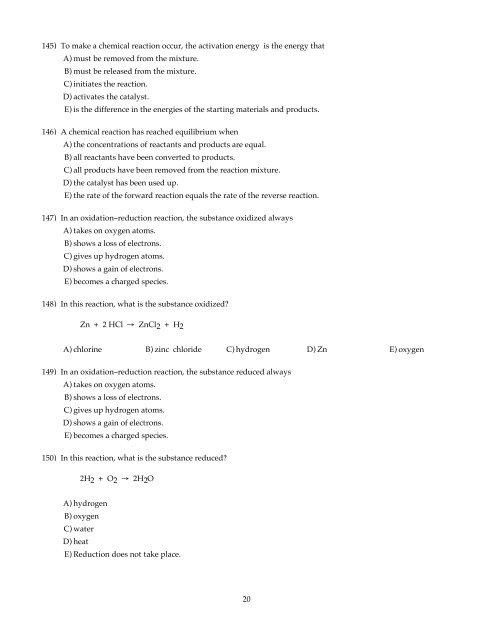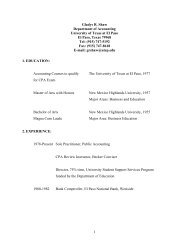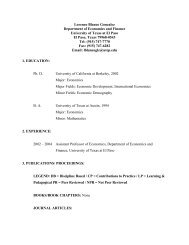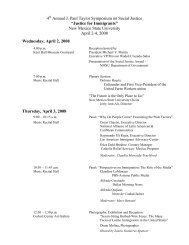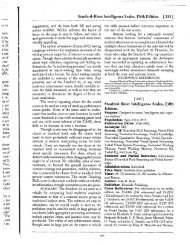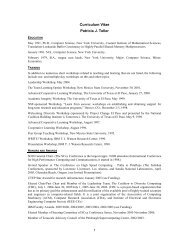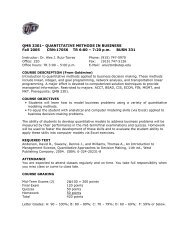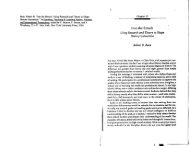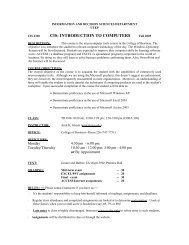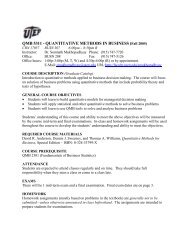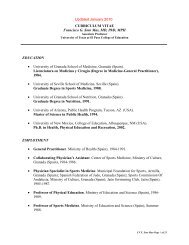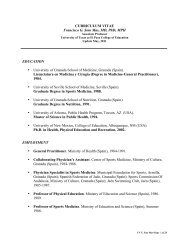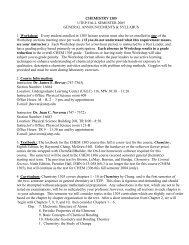Exam - Faculty.utep.edu
Exam - Faculty.utep.edu
Exam - Faculty.utep.edu
You also want an ePaper? Increase the reach of your titles
YUMPU automatically turns print PDFs into web optimized ePapers that Google loves.
145) To make a chemical reaction occur, the activation energy is the energy that<br />
A) must be removed from the mixture.<br />
B) must be released from the mixture.<br />
C) initiates the reaction.<br />
D) activates the catalyst.<br />
E) is the difference in the energies of the starting materials and products.<br />
146) A chemical reaction has reached equilibrium when<br />
A) the concentrations of reactants and products are equal.<br />
B) all reactants have been converted to products.<br />
C) all products have been removed from the reaction mixture.<br />
D) the catalyst has been used up.<br />
E) the rate of the forward reaction equals the rate of the reverse reaction.<br />
147) In an oxidation-r<strong>edu</strong>ction reaction, the substance oxidized always<br />
A) takes on oxygen atoms.<br />
B) shows a loss of electrons.<br />
C) gives up hydrogen atoms.<br />
D) shows a gain of electrons.<br />
E) becomes a charged species.<br />
148) In this reaction, what is the substance oxidized<br />
Zn + 2 HCl ¬ ZnCl2 + H2<br />
A) chlorine B) zinc chloride C) hydrogen D) Zn E) oxygen<br />
149) In an oxidation-r<strong>edu</strong>ction reaction, the substance r<strong>edu</strong>ced always<br />
A) takes on oxygen atoms.<br />
B) shows a loss of electrons.<br />
C) gives up hydrogen atoms.<br />
D) shows a gain of electrons.<br />
E) becomes a charged species.<br />
150) In this reaction, what is the substance r<strong>edu</strong>ced<br />
2H2 + O2 ¬ 2H2O<br />
A) hydrogen<br />
B) oxygen<br />
C) water<br />
D) heat<br />
E) R<strong>edu</strong>ction does not take place.<br />
20


